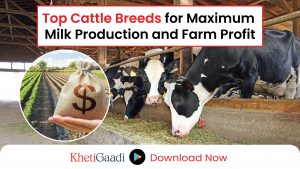PM Fasal Bima Yojana: Securing Farmers’ Future
India’s agricultural sector is the backbone of its economy, supporting nearly 60% of the population. Despite its crucial role, agriculture remains vulnerable to the unpredictable whims of nature. To address these challenges and safeguard farmers’ interests, the Government of India introduced the PM Fasal Bima Yojana (PMFBY) in 2016. This comprehensive crop insurance scheme aims to provide financial support to farmers in the event of crop failures due to natural calamities, pests, and diseases. Let’s delve into the various facets of this vital initiative.
Understanding Pradhan Mantri Fasal Bima Yojana
Objectives of PMFBY
The primary objectives of the PMFBY scheme are:
- Financial Support: To provide financial assistance to farmers in times of crop loss or damage due to unforeseen events.
- Stability in Income: To stabilize the income of farmers by ensuring compensation for crop losses.
- Encouragement for Adoption of Modern Techniques: To encourage farmers to adopt modern agricultural practices and innovative technologies by reducing the risk factor.
- Ensuring Flow of Credit: To ensure the flow of credit to the agriculture sector, supporting productivity and sustainable farming practices.
Key Features of PM Fasal Bima Yojana
The PMFBY is structured to address the diverse needs of farmers across India. Its features include:
- Comprehensive Coverage: The scheme provides coverage for all food crops (cereals and pulses), oilseeds, and annual commercial/horticultural crops.
- Low Premium Rates: Farmers pay a nominal premium rate, while the remaining premium is shared by the central and state governments. The premium rates are capped at:
- 2% for Kharif crops
- 1.5% for Rabi crops
- 5% for commercial and horticultural crops
- Use of Technology: Advanced technology, including smartphones, remote sensing, and drones, is used for accurate and speedy assessment of crop loss.
- Unified Platform: The PMFBY portal serves as a single point for farmers to access information, enroll in the scheme, and monitor their claims.
Evolution of PMFBY
Since its inception in 2016, the PMFBY has undergone several improvements to enhance its effectiveness:
- Simplified Procedures: The application and claim settlement processes have been simplified to facilitate easy access for farmers.
- Increased Coverage: The scheme has been expanded to cover a wider range of crops and regions, addressing the diverse agricultural landscape of India.
- Improved Transparency: The use of technology has increased transparency and reduced delays in claim settlements.
Benefits of PMFBY for Farmers
The PMFBY scheme offers numerous benefits that significantly impact the agricultural community:
- Financial Security
One of the primary benefits of the PMFBY is the financial security it provides to farmers. By compensating for crop losses due to natural calamities, pests, and diseases, the scheme ensures that farmers have a safety net to rely on during challenging times.
- Encouragement of Modern Practices
With reduced risks, farmers are more likely to adopt modern agricultural practices and technologies. This shift enhances productivity, improves crop quality, and contributes to sustainable farming practices.
- Stabilization of Income
Crop failures can lead to significant income fluctuations for farmers. The PMFBY stabilizes their income by providing timely compensation, reducing the impact of crop loss on their livelihoods.
- Enhanced Credit Flow
The assurance of crop insurance encourages banks and financial institutions to extend credit to farmers, facilitating investments in agricultural inputs and equipment.
- Community Empowerment
By addressing the vulnerabilities faced by farmers, the PMFBY contributes to the overall empowerment of rural communities. It enables farmers to make informed decisions and enhances their resilience against challenges.
How to Avail PMFBY: A Step-by-Step Guide
Enrolling in the PMFBY scheme involves a straightforward process that ensures farmers can easily access its benefits:
Step 1: Understanding Eligibility
Farmers, including tenant farmers and sharecroppers, who grow notified crops in notified areas, are eligible for the scheme. The eligibility criteria are designed to cover all categories of farmers.
Step 2: Choosing the Right Crop
Farmers need to identify the crops they want to insure under the PMFBY scheme. The scheme covers a wide range of crops, including:
- Food crops: Rice, wheat, maize, etc.
- Oilseeds: Soybean, groundnut, mustard, etc.
- Commercial/horticultural crops: Cotton, sugarcane, fruits, and vegetables.
Step 3: Enrolling in the Scheme
Farmers can enroll in the PMFBY scheme through the following channels:
- Online Enrollment: Farmers can visit the PMFBY portal and complete the enrollment process by providing the necessary details, such as Aadhaar number, land records, and crop information.
- Bank Enrollment: Farmers can also enroll through their nearest bank branch by submitting the required documents.
Step 4: Paying the Premium
Farmers need to pay a nominal premium based on the crop and season. The premium amount can be paid online through the portal or at the bank branch during enrollment.
Step 5: Monitoring and Claims
Farmers can monitor their insurance status and claims through the PMFBY portal. In the event of crop loss, farmers should report the damage promptly to initiate the claim process.
Real-Life Impact: Success Stories of PMFBY
The PMFBY scheme has made a tangible difference in the lives of farmers across India. Here are some real-life success stories that highlight its impact:
Case Study 1: Transforming Lives in Maharashtra
Location: Vidarbha, Maharashtra
Farmer: Ramesh Patil, a small-scale farmer growing cotton
Challenges: Vidarbha, known for its cotton cultivation, faced severe drought, leading to significant crop losses. Ramesh Patil, like many others, struggled with the financial burden of crop failure.
Impact of PMFBY: Through the PMFBY scheme, Ramesh received timely compensation for his cotton crop loss. This financial aid not only helped him recover from the setback but also encouraged him to adopt water-efficient farming practices, improving his farm’s resilience.
Outcome: With the support of PMFBY, Ramesh was able to sustain his livelihood, repay his debts, and invest in modern irrigation techniques. His success inspired other farmers in the region to embrace the scheme, fostering a sense of community empowerment.
Case Study 2: Empowering Farmers in Tamil Nadu
Location: Thanjavur, Tamil Nadu
Farmer: Meenakshi, a woman farmer cultivating paddy
Challenges: Meenakshi faced recurrent cyclones that damaged her paddy fields, leading to significant income loss. Traditional farming practices and limited access to credit further compounded her challenges.
Impact of PMFBY: Enrolling in the PMFBY scheme provided Meenakshi with financial security during cyclones. The timely compensation enabled her to invest in better seeds and adopt innovative farming techniques.
Outcome: Meenakshi’s farm productivity improved, and she achieved a higher yield. Her story of resilience and adaptation inspired other women farmers to enroll in the scheme, empowering them to overcome challenges and contribute to their families’ well-being.
Case Study 3: Reviving Agriculture in Rajasthan
Location: Jaisalmer, Rajasthan
Farmer: Mohan Singh, a marginal farmer growing wheat and mustard
Challenges: Jaisalmer’s arid climate and erratic rainfall posed significant challenges for farmers like Mohan Singh. Crop losses were frequent, leading to financial instability.
Impact of PMFBY: The PMFBY scheme provided Mohan Singh with a safety net against crop failures. The compensation allowed him to invest in drought-resistant seed varieties and implement water-saving techniques.
Outcome: Mohan Singh’s farm became more resilient to climatic fluctuations, resulting in improved yields. His experience showcased the potential of the PMFBY scheme to transform agriculture in challenging environments, encouraging more farmers to participate.
Case Study 4: Overcoming Flood Challenges in Assam
Background
- Location: Barpeta, Assam
- Farmer: Arjun Bora, a rice and jute farmer with 2 hectares of land
Challenges
Arjun Bora’s farm faced severe flooding due to heavy monsoon rains, resulting in extensive damage to his rice and jute crops. The flooding led to significant losses, threatening his livelihood and financial stability.
Impact of PMFBY
Arjun had enrolled in the PMFBY scheme before the flood occurred. The insurance covered the damage caused by the flood, and he received a compensation amount that helped him recover from the losses.
Results
- Recovery and Restoration: With the compensation, Arjun was able to recover his losses and invest in replanting his crops.
- Improved Resilience: The financial support allowed him to adopt flood-resistant farming techniques, reducing future risks.
- Community Influence: Arjun’s successful recovery encouraged other farmers in his area to enroll in PMFBY, enhancing overall community resilience.
Success Story
Arjun Bora’s experience illustrates the effectiveness of the PMFBY scheme in providing timely support during natural calamities. His ability to bounce back from a flood disaster highlights the scheme’s role in stabilizing farmers’ livelihoods.
Case Study 5 : Adapting to Drought in Rajasthan
Background
- Location: Jaisalmer, Rajasthan
- Farmer: Mohan Singh, a wheat and barley farmer with 1.5 hectares of land
Challenges
Mohan Singh’s farm was severely affected by a prolonged drought in Jaisalmer. The lack of rainfall led to poor crop yields and significant financial strain.
Impact of PM Fasal Bima Yojana
Having enrolled in PMFBY, Mohan Singh received compensation for his drought-affected crops. This financial assistance was crucial for managing his losses and supporting his family during the drought.
Results
- Debt Reduction: The compensation helped Mohan Singh repay some of his debts, easing his financial burden.
- Investments in Water Conservation: He used part of the insurance payout to invest in rainwater harvesting and drip irrigation systems.
- Enhanced Farming Practices: With improved water management, Mohan Singh’s farm became more resilient to drought conditions.
Success Story
Mohan Singh’s successful adaptation to drought with the help of PMFBY showcases the scheme’s effectiveness in mitigating the impact of environmental challenges on farmers.
Case Study 6: Rebuilding After Cyclone in Tamil Nadu
Background
- Location: Thanjavur, Tamil Nadu
- Farmer: Lakshmi Rani, a paddy and sugarcane farmer with 3 hectares of land
Challenges
Lakshmi Rani’s farm suffered extensive damage from a cyclone that hit Tamil Nadu. The cyclone uprooted her paddy and sugarcane crops, leading to substantial losses.
Impact of PMFBY
Lakshmi Rani was enrolled in PM Fasal Bima Yojana and received timely compensation for her cyclone-damaged crops. The insurance payout provided her with the necessary funds to restore her farm and prepare for the next planting season.
Results
- Replanting and Recovery: Lakshmi Rani used the compensation to replant her crops and repair damaged infrastructure.
- Financial Stability: The financial aid helped her stabilize her income and manage the impacts of the cyclone.
- Community Support: Her recovery inspired other farmers in the region to enroll in PMFBY, improving overall preparedness for future natural disasters.
Success Story
Lakshmi Rani’s ability to rebuild her farm after a cyclone, thanks to the PMFBY scheme, highlights the scheme’s role in supporting farmers through severe weather events.
Case Study 7: Supporting Livelihoods in Uttar Pradesh
Background
- Location: Agra, Uttar Pradesh
- Farmer: Suman Devi, a smallholder growing wheat and pulses with 1 hectare of land
Challenges
Suman Devi’s farm was affected by a combination of erratic rainfall and pest infestations. These issues led to poor crop performance and financial instability.
Impact of PMFBY
Suman Devi had opted for PM Fasal Bima Yojana, which provided compensation for the losses incurred due to the adverse conditions. The insurance payout was instrumental in covering her losses and preparing for future crops.
Results
- Financial Relief: The compensation helped Suman Devi manage her financial strain and sustain her farm operations.
- Improved Farming Practices: With the insurance support, she was able to invest in better seeds and pest control methods.
- Increased Community Awareness: Suman Devi’s positive experience with PMFBY encouraged other smallholders in her community to enroll in the scheme.
Success Story
Suman Devi’s story highlights how PM Fasal Bima Yojana provides critical support to smallholder farmers facing multiple agricultural challenges, ensuring their financial stability and continued productivity.
These case studies reflect the diverse ways in which the Pradhan Mantri Fasal Bima Yojana has positively impacted farmers across India. Each story underscores the scheme’s role in providing financial security, enabling recovery from disasters, and supporting sustainable agricultural practices.
Addressing Challenges and Criticisms
While the PMFBY scheme has achieved significant success, it also faces certain challenges and criticisms:
- Delay in Claim Settlements
One of the primary criticisms of the PMFBY scheme is the delay in claim settlements. Farmers have reported instances where compensation took longer than expected, causing financial distress. The government is actively working to streamline the process and reduce delays.
- Awareness and Outreach
Despite its benefits, there is a lack of awareness about the PM Fasal Bima Yojana scheme among some farmers, especially in remote areas. The government is taking steps to enhance outreach through information campaigns and collaborations with agricultural extension services.
- Inclusivity of Tenant Farmers
Tenant farmers often face challenges in accessing the scheme due to land ownership issues. The government is exploring ways to ensure greater inclusivity and address the unique needs of tenant farmers.
Government Initiatives for Improvement
To address these challenges and enhance the effectiveness of the PMFBY scheme, the government has implemented several initiatives:
- Use of Technology
The integration of technology, such as remote sensing and drones, has improved the accuracy and speed of crop loss assessment. This technological advancement ensures timely and precise compensation for farmers.
- Strengthening Partnerships
The government is collaborating with insurance companies, agricultural universities, and NGOs to strengthen the scheme’s implementation. These partnerships facilitate knowledge sharing and ensure that farmers receive comprehensive support.
- Enhanced Grievance Redressal
A robust grievance redressal mechanism has been established to address farmers’ concerns and resolve issues promptly. This initiative enhances transparency and builds trust in the scheme.
- Future Prospects and Vision
The PMFBY scheme is poised to play a pivotal role in the future of Indian agriculture. As the scheme continues to evolve, its focus will remain on:
- Expanding Coverage
Efforts are underway to expand the coverage of the PMFBY scheme, ensuring that more farmers, including those in remote and underserved areas, can benefit from its support.
- Promoting Sustainable Practices
The scheme will continue to encourage sustainable agricultural practices, supporting farmers in adopting climate-resilient techniques and reducing their carbon footprint.
- Strengthening Resilience
The PMFBY scheme aims to strengthen farmers’ resilience against climate change and other challenges. By providing a financial safety net, the scheme empowers farmers to adapt to changing conditions and thrive in the face of adversity.
Conclusion
The Pradhan Mantri Fasal Bima Yojana is a transformative initiative that underscores the government’s commitment to supporting India’s agricultural community. By providing financial security, encouraging modern practices, and fostering community empowerment, the scheme has become a beacon of hope for millions of farmers across the country. As it continues to evolve and address challenges, the PMFBY scheme holds the promise of a brighter and more resilient future for Indian agriculture.
Useful Links
- PMFBY Official Website
- Ministry of Agriculture & Farmers Welfare
- Crop Insurance Portal
Relevant Tags




